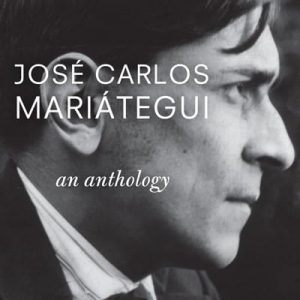Journal of Latin American Studies, 45, 2013
Harry E. Vanden and Marc Becker (eds.) José Carlos Mariátegui: An Anthology (New York: Monthly Review Press, 2011) pp. 480, $29.95, pb.
GERARDO LEIBNER
Tel Aviv University
Harry E. Vanden and Marc Becker are well known for their important contributions to the study of Latin American Marxism, Latin American revolutionary politics and Jose Carlos Mariategui’s thought. Their new joint contribution is a volume that makes available to English readers a considerable number of Mariategui’s shorter texts.
Until now, English audiences could only read Mariategui’s famous Seven Interpretative Essays on Peruvian Reality, translated by Marjory Urquidi with an introduction by Jorge Basadre (University of Texas Press, 1971), some texts included in the few anthologies of Latin American Marxist thought published in English (see Luis Aguilar, Marxism in Latin America (Knopf, 1968), and Michael Pearlman’s translation of Michael Lowy, Marxism in Latin America From 1909 to the Present: An Anthology (Humanity Books, 1992-)), and a few scattered pieces translated and disseminated by small Marxist organisations. Several of these have been made accessible to broader audiences through the internet since the second half of the 1990s. In 1996, Michael Pearlman edited and translated an important collection of essays beyond the Seven Essays, entitled The Heroic and Creative Meaning of Socialism: Selected Essays of Jose Carlos Mariategui (Humanities Press, 1996). Vanden and Becker’s current volume goes further. Organized thematically, it offers extracts from the Seven Essays, from already translated and published texts and from some new translated pieces, mostly very short ones; the latter are mainly from among Mariategui’s newspaper articles, but also include theses submitted to political meetings and some texts based on his conferences. Thanks to Mariategui’s clear and direct style these short pieces and extracts written in the 1920s might be very suitable for teaching in a variety of contexts. Mariategui, an undoubtedly gifted journalist, political author and literary critic, offers readers engaging and rich perspectives – mainly but not exclusively Latin American and Marxist ones – on some of the main issues that concerned European and Latin American progressive public opinion at the time. These translations are a welcome and useful aid for all engaged in teaching Latin American history and literature, the history of socialist ideas, indigenismo, world history, third world studies and so on.
The editors’ introduction argues quite convincingly that unlike many Marxist twentieth-century aurhors, Mariategui’s thought retains its relevance for current generations of readers. Mariategui ‘broke from a rigid, orthodox interpretation of Marxism to develop a creative Marxist analysis that was oriented toward the specific historical reality of Peru and Latin America in the 1920S’. He was also no doubt ‘one of the first to develop revolutionary socialist thought from within the Latin American reality’. Nearly all the scholars and Latin American intellectuals interested in his legacy would agree. However, the claim that Mariategui ‘developed what subsequently became known as National Marxism, an approach that addressed the realities of a local situation within the context of Marxist theory’, is more debatable. This claim was put forward by Vanden three decades ago. Even if one could accept that some of the basic ideas and approach of various actors who decades later may be regarded as ‘national Marxists’ were already developed by Mariategui, it is doubtful whether Mariategui himself would accept the epithet. From Mariategui’s perspective, to develop a ‘national’ – that is, locally specific – analysis and to ‘recreate’ Marxism from a particular reality was the only legitimate way to be a true Marxist, one that does not mechanically replicate or apply formulas developed in a different historical context.
One of the most appealing ideas suggested by the authors in their introduction is the connection between Mariategui’s understanding that ‘the indigenous peoples’ culture, identity, and exploitation at the hands of the whites and mestizos could enable conscious organizers to incorporate them into the revolutionaty movement’ and the actions of Guatemalan revolutionaries during the 1970S and 1980s. This idea will surely invite further inquiries and debates among scholars of Guatemalan society and politics…
Read the entire review in the Journal of Latin American Studies, 45, 2013

Comments are closed.